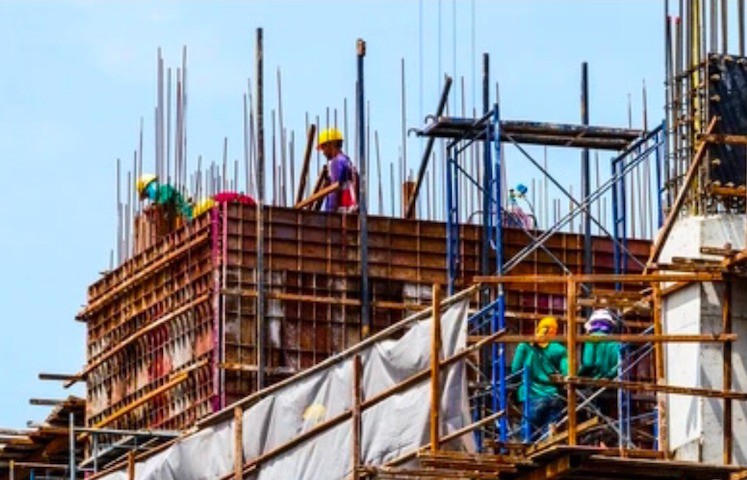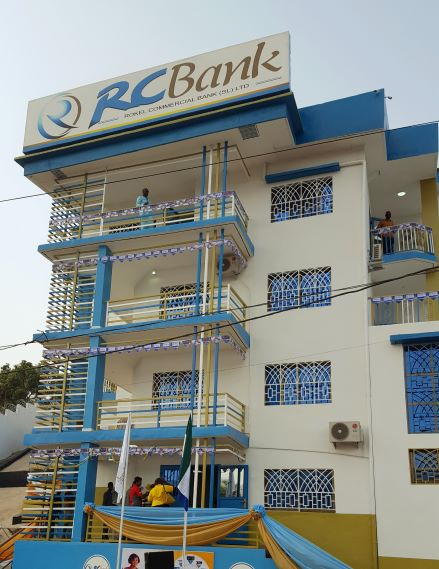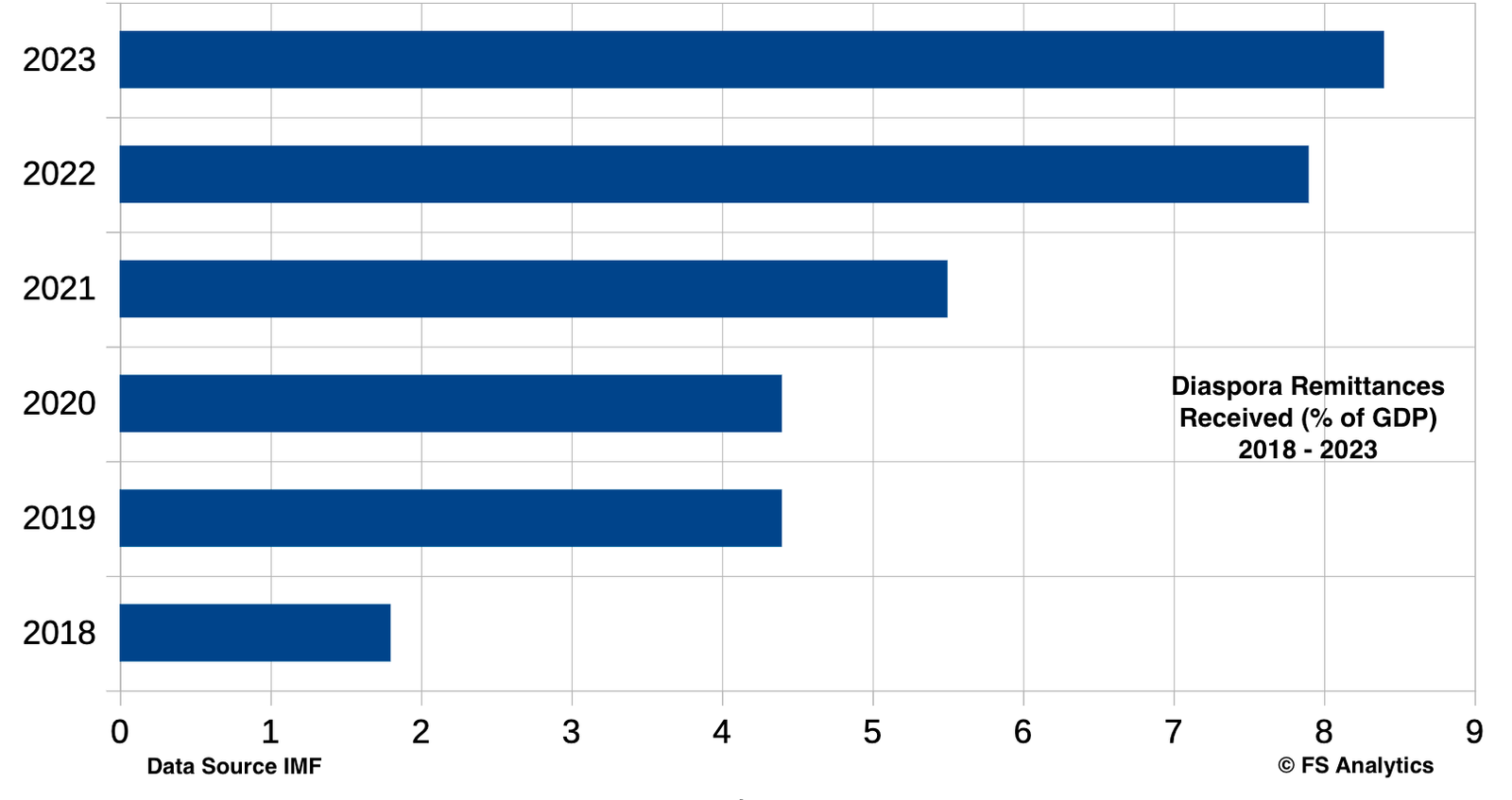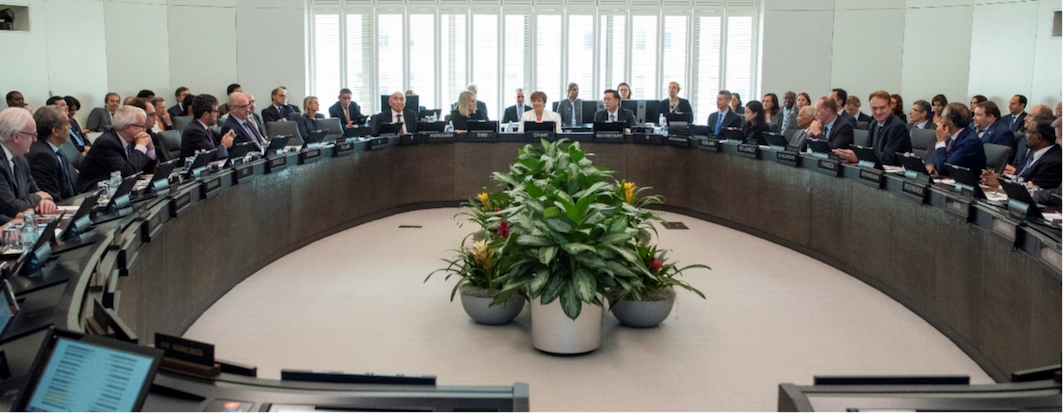05/12/2024 Environment
 COP29 Venue
COP29 Venue
Among others, the cheering news from the just concluded 29th United Nations (UN) Climate Change Conference popularly christened COP29 is the 1.3 trillion-dollar Baku Finance Goal -BFG unveiled by Azerbaijani.
Indeed, a revolutionary commitment to climate finance in developing countries, this ambitious represents significant uplift from previous climate finance commitment of $100 billion. It has effectively tripled expectations and set a new standard in global climate policy. The Baku Finance Goal is not just a financial pivot; it represents a shift in global climate governance, positioning developed nations to spearhead the mobilization of at least $300 billion annually for developing countries, marking a vital increase from past proposals. This new financial framework is designed with a focus on transparency and accessibility, particularly for the world’s most vulnerable populations, including least developed countries and small island developing states.
The breakthroughs seen at COP29 are a testament to a year of relentless diplomacy, led by COP29 President Mukhtar Babayev and the Azerbaijani delegation. Babayev emphasized the incredulity of sceptics, stating, “In a year of geopolitical fragmentation, people doubted that Azerbaijan could deliver. They doubted that everyone could agree. They were wrong on both counts.” This declaration not only acknowledges the challenges faced but also celebrates the unity achieved among participating countries. The successful negotiation and adoption of the BFG are underscored by the culmination of Article 6 discussions on carbon markets, a critical and contentious issue that has lingered for nearly a decade. The resolution of these talks opens opportunities for compliant carbon markets, with projections indicating that these financial flows could generate up to $1 trillion annually by 2050. Moreover, they might contribute to a reduction in the cost of implementing national climate plans by an estimated $250 billion each year.
The Baku Finance Goal is a cornerstone of a broader package of climate agreements, marking a paradigm shift in the architectural framework of global climate finance. The synergy between the BFG and established carbon markets will redefine investment flows towards developing nations, creating a landscape conducive to sustainable development and climate resilience.
In recognizing the efforts of the Azerbaijani government, the climate summit parties unanimously expressed gratitude, honouring both the nation and its people for their commitment and hospitality in hosting the event. This acknowledgment indicates a growing respect for the role that non-traditional players like Azerbaijan can play in global governance, especially concerning multifaceted issues like climate change.
A further milestone delivered by the COP29 Presidency is the establishment of the Fund for Loss and Damage, now set to become operational by 2025. This initiative has been a long-anticipated commitment, particularly for developing countries heavily affected by climate-related adversities. The fund's implementation is particularly crucial for small island states and nations in Africa, emphasizing Azerbaijan’s commitment to tackle the crisis's most urgent impacts.
President Babayev firmly articulated the potential of the Baku Finance Goal, asserting, “With this breakthrough, the Baku Finance Goal will turn billions into trillions over the next decade. We have secured a trebling of the core climate finance target for developing countries each year.” He acknowledged the road ahead will be fraught with challenges, underscoring the importance of collaboration among nations as they navigate the increasing complexities posed by climate change.
The developments in Baku herald a new era in climate finance, potentially transforming the global landscape and aiding in the fight against global warming. As countries strive towards the goal of limiting temperature rises to 1.5 degrees Celsius, the unity and resolve displayed at COP29 will be critical to achieving sustainable progress.
By Ibrahim Mansaray
05/12/2024 Environment
Development and climate adaptation finance are fundamentally interconnected, particularly in urban areas, because resilience is inherently a development challenge. Cities struggling with poverty, inadequate infrastructure, and limited access to basic services cannot effectively manage climate risks. And it is the urban poor, especially those living in informal settlements, who are disproportionately affected by climate change.
As such, development and climate adaptation finance are both essential for urban resilience. While the World Bank is contributing to urban climate adaptation through projects like upgraded drainage and flood protection systems, we are also contributing through urban development projects that help lift people out of poverty and expand their access to affordable housing and essential urban services.
Faster, more inclusive urban development reduces climate vulnerabilities by reducing the number of highly vulnerable people and equipping communities with the resources they need to recover from shocks and build resilience. Much of this progress is being driven by the World Bank’s urban development finance, which is supporting cities’ adaptive capacity, such as planning, resource mobilization, and community participation, even when it is not explicitly labeled as urban climate finance.
05/12/2024 Environment
While the progress made is commendable, we must recognize that much more is required. Cities in low and middle-income countries are facing an enormous urban climate finance gap, requiring between US$840 billion and US$1.4 trillion annually to develop climate-resilient infrastructure.
Development finance institutions are already the largest source of public funds for urban climate finance, having contributed over 30% of overall public urban climate finance in 2021-2022. And at COP29, the World Bank joins the other MDBs to collectively reiterate our commitment to accelerating urban climate finance even further.
However, even combined, the MDBs cannot fully close the urban climate finance gap. Bridging this gap will require broader cooperation and partnerships among diverse groups with resources and expertise. Collaboration between MDBs, city networks like C40 and the Global Covenant of Mayors (GCoM), private sector actors, philanthropy, and climate finance facilities will be critical.
To advance these partnerships, the MDB Cities Group, convened by the World Bank and European Bank for Reconstruction and Development, has proposed a more structured series of engagements between the MDBs and city leaders and groups. We plan to meet regularly over the next 18 months with a focus on scaling urban climate finance and enhancing urban adaptation.
In conclusion, while the MDBs, including the World Bank, have made commendable strides in scaling up urban climate finance, the challenges ahead remain significant. By working in partnership, we are working to accelerate the flow of necessary resources to cities. Together, we are pushing for more urban climate finance to build more livable cities for a livable planet.
21/10/2024 Real Estate & Property
 Constuction Ongoing
Constuction Ongoing
It’s the fad in Sierra Leone for landlords to charge rent in foreign currency notably the US dollars. This has been unsettling for all and sundry especially prospective tenants in the country. It’s also a cause for outrage on why the dollar is preferred over and above the national currency – the Leone in housing transactions in the country.
FS recently spoke to practitioners in the Real Estate sector – known notoriously for this practice with a view to unravel the motivation behind this practice which is increasingly become a source of concern and irritation to the people.
Many real estate agents spoken to cite the instability of the local currency as a primary reason for this practice. David Kandeh, a real estate agent in Freetown is one of them, "The Leone has lost value significantly over the years. Landlords want to protect their investments, and charging in dollars provides that security." He said and emphasized that this approach helps landlords ensure a stable return amid rising inflation.
Fatima Sesay, also a Freetown based estate agent is of the opinion that the practice is fuelled by the desire to attract foreign investors. “Expatriates and overseas investors can be drawn to houses listed in dollars”, she told FS. Adding "Many international companies and NGOs operate here, and they prefer to deal in dollars," she says. "By offering rentals in US denominated dollar, landlords can tap into a market that often pays more, which can lead to higher occupancy rates."
But there are significant impact of this on the local populace. "For many Sierra Leoneans, it's incredibly difficult to earn in leones and pay rent in dollars," Samuel Kamara, a young professional in Freetown observed saying accessibility to housing becomes very difficult for many because of this practice. He pointed out that the present widening gap in the property rental mark is a direct consequence of tat practice. “It’s making reasonably priced housing more and more difficult to find for residents”. Mariatu Bangura, another expert in the property market spoke about the need to maintain a balance. "While landlords are right to want security for their investments, there should be a conversation about fair pricing that reflects local economic conditions," she told FS in a chat on this issue.
To provide tenants additional alternatives and flexibility, she suggested a dual pricing scheme where rentals are advertised in both dollars and leones.
The practice of renting properties in US dollar underscore the serious need for a national discussion especially as the country’s real estate market continues to undergo drastic changes. There is the need to address the rising concern for a fairer housing market that would meet the needs of locals.
By Joan Bannister

By John Marah

By Dolly Jones

By Ibrahim Mansaray

By Vicky Sawyerr